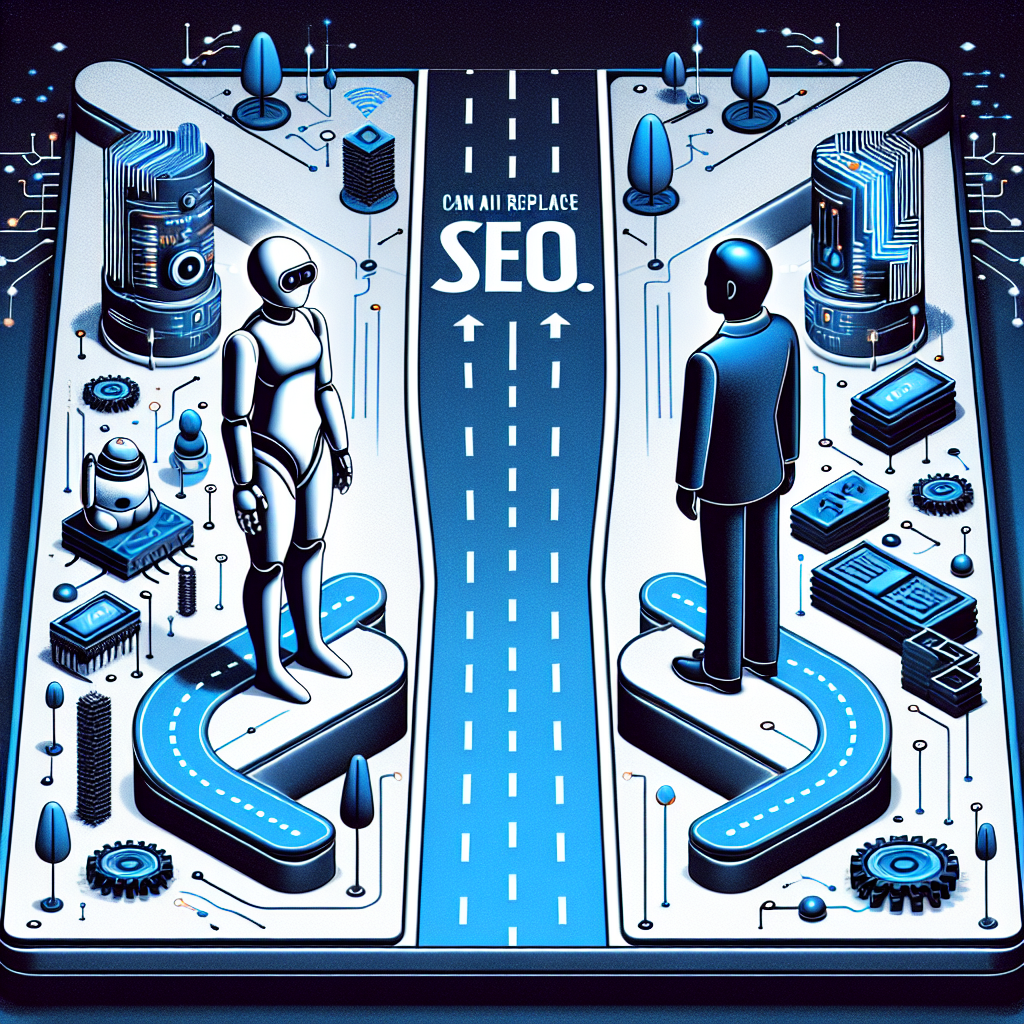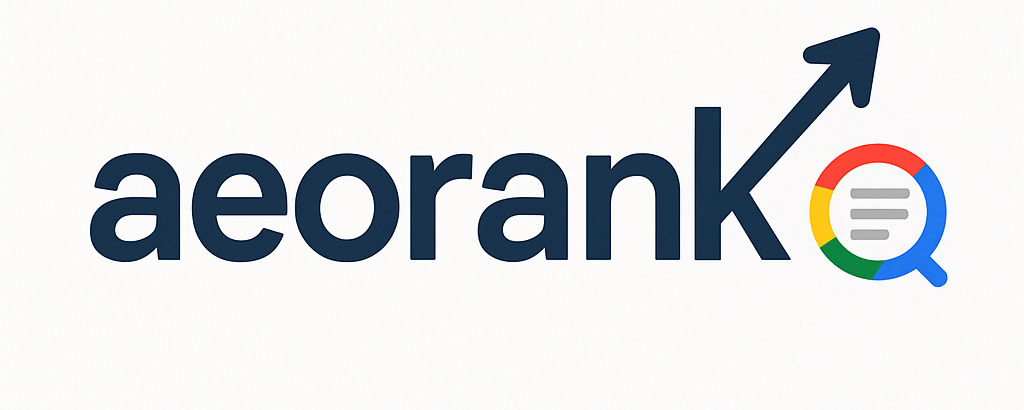
Will AI Truly Replace SEO? Let’s Talk About It!
The Buzz, the Fears, and the Exciting Reality for Search Professionals
Alright, let’s be real for a minute. Everywhere you look, it’s AI this, AI that. From crafting emails that sound eerily human to churning out lines of code in a blink, artificial intelligence is absolutely everywhere. And naturally, it’s got folks in every industry, including us SEO stalwarts, wondering: Is my job safe? Specifically, will AI replace SEO in the future? It’s a pretty hefty question, isn’t it? One that probably keeps a few of us up at night, or at least makes us ponder over our morning coffee.
Honestly, the idea of a robot taking over something as nuanced and ever-changing as search engine optimization can feel a bit… unsettling. But here’s the scoop, and perhaps a breath of fresh air: it’s not quite that simple. We’re not looking at a Terminator-style takeover of the SEO landscape. Instead, what’s unfolding right before our eyes is more of a grand collaboration, a fascinating evolution where AI becomes less of a competitor and more of an incredibly powerful co-pilot. Think of it this way: when calculators came along, mathematicians didn’t vanish, did they? They just got better, faster, and could tackle even bigger problems. SEO, I reckon, is headed down a similar path.
The Whispers Are Loud: What’s Everyone Afraid Of?
AI’s Current “Wow” Moments in SEO
You know, it’s easy to get caught up in the hype. We’ve seen AI tools that can generate a thousand keyword ideas in seconds, or draft entire blog posts based on a single prompt. They can analyze mountains of data – stuff that would take us humans weeks or months – and spit out insights about competitor strategies or content gaps. AI can even identify broken links, spot technical SEO issues on a website, or help with schema markup generation. These capabilities are genuinely impressive, and for a moment, they make you pause and think, “Whoa, that’s a lot of what I do!”
And let’s be fair, AI is doing some truly astonishing things across the board. Look at how it’s changing customer service with chatbots that actually understand what you’re asking, or how it’s speeding up drug discovery in labs. The sheer efficiency and processing power are undeniable. So, when we see it creeping into our beloved SEO world, it’s natural to feel a tremor of concern. After all, if an algorithm can crunch numbers, write content, and even suggest strategies, what’s left for us?
Well, here’s the interesting bit. While AI is a wizard with data and automation, it still fundamentally lacks something crucial: a beating heart. And that, my friend, makes all the difference.
Where AI Shines (and Where It Still Needs Our Human Touch, Frankly)
The Unbeatable Human Edge
Let’s break it down. AI, bless its silicon heart, is incredible at processing information. It’s like having a super-fast, tireless intern who never sleeps. It can:
- Automate Tedious Tasks: Think sifting through thousands of keywords, identifying content ideas, or even drafting initial content outlines. It speeds things up immensely.
- Analyze Big Data: AI can spot trends and patterns in massive datasets that would simply overwhelm a human. This is gold for technical audits or competitor analysis.
- Scale Content Production: Need fifty product descriptions? AI can whip them up, no problem.
But here’s the thing. While AI can *generate* content, can it truly *understand* the nuanced emotional intent behind a search query? Can it grasp the subtle cultural connotations of a phrase, or anticipate the unspoken needs of a user visiting a site? That’s where we, the humans, step in. Because SEO isn’t just about keywords and links; it’s about understanding people. It’s about communication, trust, and connection.
AI can tell you *what* people search for, but can it tell you *why* they search for it, or *how* they feel when they find (or don’t find) what they’re looking for? Can it truly craft a brand voice that resonates, or tell a story that genuinely moves someone? Not really. Not yet, anyway.
The Human Touch: Why You Can’t Automate Empathy (Yet!)
E.E.A.T. and the Irreplaceable Human Element
Remember Google’s E.E.A.T. framework? It stands for Experience, Expertise, Authoritativeness, and Trustworthiness. This isn’t just some fancy acronym; it’s the bedrock of what Google wants to reward. And honestly, how do you infuse genuine experience or trustworthiness into content without a real, live human behind it?
Think about it. When you’re looking for health advice, would you rather read an article generated by an algorithm or one written by a qualified doctor who has treated hundreds of patients? When you’re trying to figure out how to fix a leaky faucet, do you want generic instructions, or tips from a plumber who’s seen every kind of pipe disaster imaginable? That personal touch, that lived experience, that undeniable authority that comes from actually *doing* the work – that’s something AI just can’t replicate. It can pull facts, yes, but it can’t convey genuine wisdom or empathy.
A great SEO strategy isn’t just about ticking boxes; it’s about understanding the human psychology behind search. It’s about knowing when to use a witty headline, when to be reassuring, or when to address a user’s hidden fear. These aren’t data points; they’re human interactions. And that, my friend, is where our value truly shines. We adapt. We strategize based on intuition, not just patterns. We build relationships with clients and audiences. Can a machine truly grasp the subtle nuances of consumer behavior, the shifting tides of cultural trends, or the inherent quirks of human decision-making? I don’t think so.
The SEO Professional of Tomorrow: A New Kind of Hero?
Embracing the AI Era: Evolving, Not Erasing
So, if AI isn’t here to steal our jobs, what’s its role? It’s here to make us better, more efficient, and perhaps, more strategic. The SEO professional of the future won’t be a human trying to out-process a machine; they’ll be someone who knows how to *command* the machine.
Your skills will shift. Instead of spending hours manually doing keyword research, you’ll be interpreting AI-generated reports. Instead of writing every single word of content, you’ll be editing, refining, and injecting that crucial human voice and expertise into AI-drafted pieces. You’ll become an expert prompt engineer, coaxing the best possible outputs from these powerful tools. You’ll be the one who understands how to blend AI’s speed with human creativity, ensuring the content meets Google’s quality guidelines and resonates with real people.
Think of it as stepping up the ladder. AI takes care of the grunt work, freeing you up for higher-level thinking:
- Strategy: Developing overarching plans, not just executing tasks.
- Ethical Oversight: Ensuring AI-generated content is accurate, unbiased, and responsible.
- Niche Expertise: Deepening your understanding of specific industries to provide truly unique insights that AI can’t generate.
- User Experience (UX) Mastery: Focusing on how real people interact with your site, an area where human intuition is king.
This isn’t about replacement; it’s about a grand upgrade. SEO won’t disappear; it’ll morph into something even more exciting and impactful. We’ll be less like factory workers and more like architects, designing the digital experiences of tomorrow.
Keeping Your SEO Game Strong in the AI Era: A Few Pointers
Future-Proofing Your Skills (and Your Career)
Worried about staying relevant? Don’t be. Here’s a little roadmap to help you navigate this exciting new terrain:
- Embrace the Tools: Get your hands dirty with AI tools. Play with them. Understand their strengths and weaknesses. The more comfortable you are, the more powerful you become. Tools like Google Search Console and various analytics platforms will still be indispensable, but now AI layers on top, offering new ways to interpret that data.
- Deepen Your Human Skills: Focus on what AI can’t do. Hone your critical thinking, your creativity, your understanding of human psychology, and your communication skills. These are your superpowers.
- Master Prompt Engineering: Learning how to “talk” to AI effectively is a burgeoning skill. Crafting the right prompts to get the best outputs from large language models is a game-changer. It’s like learning a new language, but one that helps you build something amazing.
- Stay Agile and Curious: The digital landscape is always shifting. AI is just another big wave. Continuous learning isn’t just a nice-to-have; it’s a must-have. Keep up with algorithm updates, AI advancements, and new industry trends.
- Focus on E.E.A.T.: Seriously, this can’t be stressed enough. Become a genuine expert in your field. Build real-world experience. Develop a trustworthy online presence. This is your shield against any algorithmic change.
It’s about evolving. It’s about adapting. Just as SEO itself has evolved from simple keyword stuffing to a sophisticated blend of technical mastery, content artistry, and user experience design, so too will the role of the SEO professional.
So, Will SEO Be Gone? A Reassuring Thought
The Collaborative Future Is Bright
Let’s circle back to that big question: Will AI replace SEO? The answer, unequivocally, is no. SEO, at its core, is about connecting people with information. As long as people are searching for answers, products, or entertainment online, SEO will exist. It might change its shape, its tools, and even its language a bit, but its fundamental purpose remains.
What we’re witnessing is SEO leveling up. AI is the catalyst, pushing us to become more strategic, more human-centric, and ultimately, more valuable. It’s not about us versus them; it’s about us with them. The future of SEO isn’t about AI replacing humans; it’s about humans who use AI replacing humans who don’t. And honestly, that sounds like a much more exciting, innovative, and impactful future for all of us. Don’t you agree?
Got Questions? We’ve Got (Concise) Answers!
Your Quick Guide to AI and SEO’s Future
- What are the primary ways AI is changing daily SEO tasks?
- AI is automating many repetitive or data-intensive SEO tasks, such as initial keyword research, content idea generation, technical site audits, and large-scale data analysis. This frees up SEO professionals to focus on higher-level strategy and creative oversight.
- What specific skills should SEO professionals develop to stay relevant in an AI-driven future?
- To remain relevant, SEO professionals should hone skills in strategic thinking, AI prompt engineering, interpreting complex data, understanding user psychology, and maintaining a strong human editorial voice. Focus on becoming an expert in your niche area.
- Can AI truly write content that ranks well on Google?
- AI can generate text, which can form the basis of content. However, for content to truly rank well, especially under Google’s E.E.A.T. guidelines, it requires significant human review, refinement, and the injection of genuine experience and expertise to ensure accuracy, relevance, and a unique, trustworthy voice.
- How does Google’s algorithm view content created with AI assistance?
- Google’s algorithms are primarily focused on the quality, usefulness, and E.E.A.T. of content, regardless of how it was created. Content generated with AI assistance that is low-quality, lacks originality, or provides little value to users is unlikely to rank well. High-quality, helpful AI-assisted content with strong human oversight can perform just as well as human-written content.
- Will small businesses still need dedicated SEO services if AI tools become widely available and powerful?
- Absolutely. While AI tools offer powerful capabilities, small businesses will still need SEO professionals to craft tailored strategies, understand specific local market nuances, conduct nuanced competitor analysis, provide unique human insights, and adapt to rapidly changing search engine landscapes. Human expertise remains crucial for truly effective and personalized SEO initiatives.
